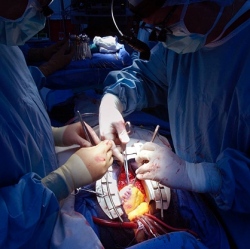
The researchers have reported their results in the medical journal The Lancet and have presented their findings at the World Transplant Congress in San Francisco. Kidney transplantation is still the best treatment for patients with kidney failure, but much more subtle approaches are needed if success rates are to be improved.
Around 2,000 people have a kidney transplant in the UK every year, and 15,000 people receive a transplant annually in the USA. Patients need to take drugs to suppress their immune systems in order to reduce the chances that their body will ‘reject’ the new kidney. It is a risky procedure since disabling the immune system in this way can lead to an increased number of infections and cancer.
Doctors are often faced with a difficult conundrum: using powerful combinations of treatments to prevent early kidney rejection can cause kidney damage later, and may subsequently be a cause of transplant failure.
One of the main culprits is a class of drugs known as calcineurin inhibitors. These drugs are very effective at preventing rejection in the first weeks and months after a transplant, but their effects can have serious consequences for the kidney later on.
The 3C study, led by Oxford University scientists, tested whether the anti-rejection drug alemtuzumab with low-dose tacrolimus (a calcineurin inhibitor) could reduce transplant rejection when compared with existing treatment.
